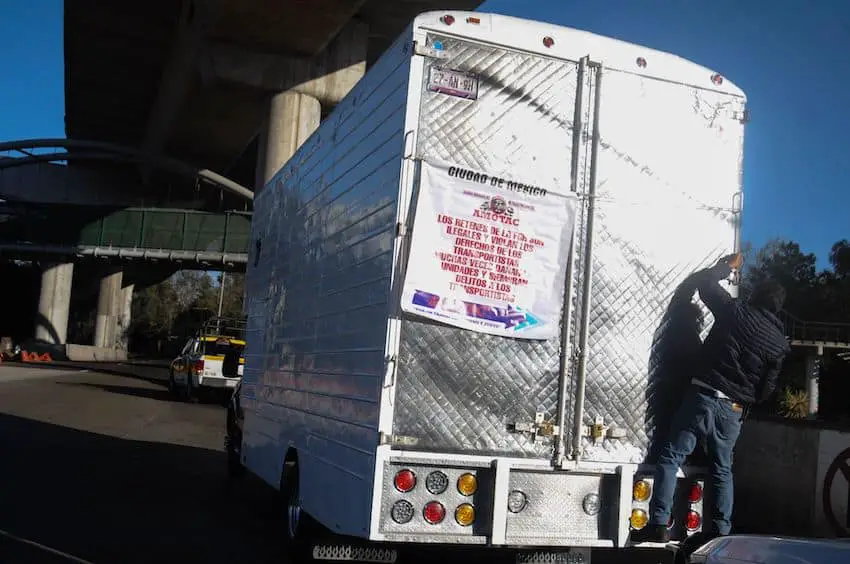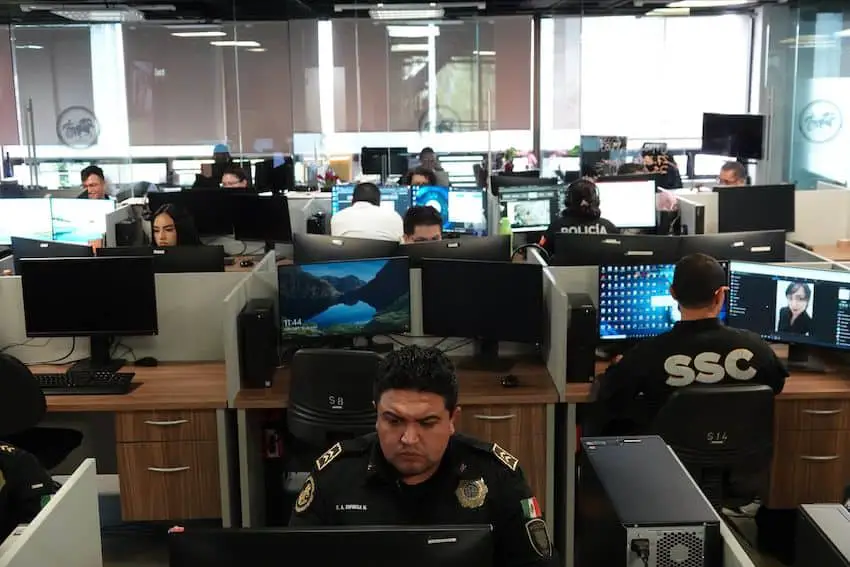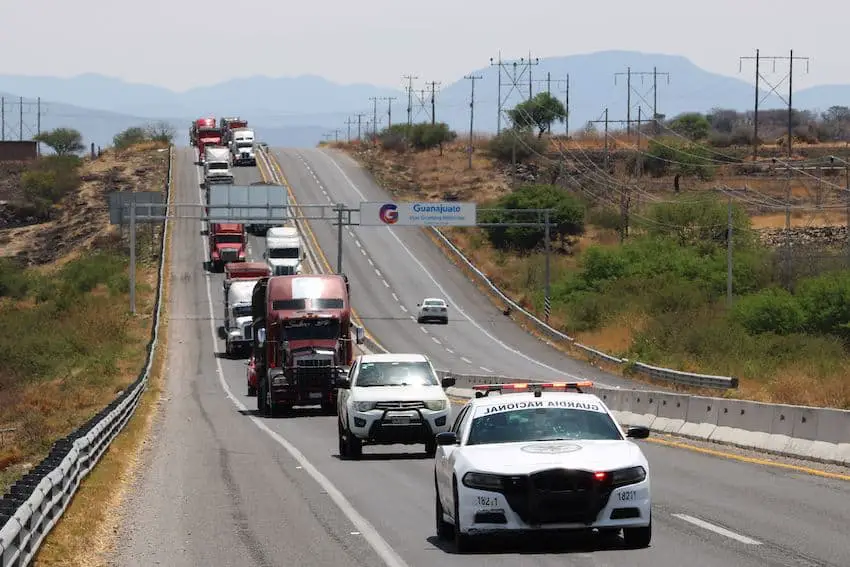The American Chamber of Commerce of Mexico’s latest Business Security Survey (SSE) yielded mixed results.
Six in 10 companies in Mexico said they are affected by crime, but the percentage of those that consider themselves safer than in the previous year more than doubled compared to the previous survey.

For its 2024 SSE, AmCham, as the Mexico City-based business organization is known, canvassed opinions on security issues among 218 executives and security-focused employees of Mexican and foreign companies that operate in Mexico.
Pedro Casas, executive vice president and CEO of AmCham, said that the objective of the survey is to “generate information” that is useful for the private sector and allows companies to “continue operating, investing and competing in Mexico.”
He also said that the survey allows AmCham to provide “valuable information” to the government. Consequently, authorities and the private sector can “work together to find solutions to our shared problems,” Casas said.
Key findings of the SSE
AmCham outlined the “main results” of the SSE near the beginning of a 63-page survey report. A selection of the results appears below.
- Six in 10 companies consider themselves “somewhat or very affected by crime,” including organized crime.
- Almost four in 10 companies — 39% — consider themselves to be safer than the year before. The figure is more than double the 17% of companies that said the same when the previous SSE was conducted in 2021.
- More than four in 10 companies — 43% — believe they will feel safer next year than this year. That figure increased from 29% in the previous survey.
- More than one in 10 companies — 12% — believe that organized crime groups have taken partial control of the sale and/or distribution of the products they sell. An additional 1% said that organized crime has taken complete control of the sale and/or distribution of the goods they sell.
- Almost six in 10 companies — 58% — spend between 2% and 10% of their total annual budget on security measures. Almost four in 10 — 38% — spend less than 2% of their budgets on security, while 4% dedicate more than 10% of their annual outlay on security.
- Eight in 10 companies provide security and safety training to their employees at least once a year.
- More than eight in 10 respondents — 81% — consider cybersecurity a top priority for their company.
- Eight in 10 respondents believe that the rule of law is only lightly enforced or not enforced at all in Mexico.
Which crimes most commonly affect companies in Mexico?
Based on the SSE results, AmCham said that the crimes that most commonly affected companies over the past 12 months were physical attacks and muggings of employees; attacks on vehicles transporting goods; and cyber extortion.
More than half of the companies that participated in the survey — 52% — reported that at least one of its employees was attacked or mugged in the previous 12 months.

Just under half of the companies — 49% — were victims of attacks on vehicles transporting their goods, while 45% were targeted by online extortionists.
Protests and/or blockades affected 29% of surveyed companies over the past year, while 28% were targeted in cyberattacks. Almost one quarter — 23% — were victims of illegal acts, such as robbery or fraud, committed by their own employees.
What are companies’ greatest security concerns?
The safety of employees and their families was a major concern of 63% of respondents to the SSE.
Virtually the same percentage of those polled — 62% — cited cybersecurity as a major concern. The state oil company Pemex and CI Banco are among the companies in Mexico that have been targeted in cyberattacks.
More than half of those polled — 56% — identified the security of company facilities as a major concern, while exactly 50% said that transporting goods in Mexico was a big worry.
About one-third of respondents said that public security “indifference” on the part of authorities was a major concern, while 30% said that the risk of “internal robbery or fraud” worried them.
How are companies addressing their security concerns?
Almost eight in 10 respondents — 77% — said their companies’ investment in “innovation and technology” had helped to “optimize security conditions.”
Almost seven in 10 respondents — 69% — said that the creation of crisis management plans had benefited their companies, while 62% said that increasing cybersecurity measures had a positive effect.
Security training of employees was seen as an enhancement to security by 60% of respondents, while 59% said that the undertaking of risk analyses was a beneficial exercise.
Sixteen percent of respondents said their companies are using artificial intelligence for security-related purposes, while an additional 28% said their companies planned to make use of AI for security-related reasons in the future.
The survey found that AI is most commonly used by companies to enhance cybersecurity, improve the performance of “access controls” and improve the functionality of closed-circuit television (CCTV).
Just over one in five companies — 21% — said they have suspended their operations in certain states due to security concerns. AmCham also reported that in seven cases, companies transferred some or all of their operations to foreign countries due to security concerns.

What does business want the government to do?
Almost half of all SSE respondents — 47% — said that the federal government should favor a security strategy aimed at the prevention of crime.
Just over one in five respondents — 22% — advocated greater use of technology in the fight against crime, while 17% said that investigative capacities need to be improved.
Which states present the greatest security challenges for companies?
Based on responses to the latest SSE, AmCham determined which states present the greatest security challenges for companies, and/or which states generate the most security concerns among employees.
- México state, which borders Mexico City and seven other states, ranked first. It has recorded the highest number of robberies of transport trucks among Mexico’s 32 states during the term of the current government, according to the Confederation of Industrial Chambers. In 2023, México state was Mexico’s second most violent state in terms of total homicides.
- Guanajuato, Mexico’s most violent state in terms of total homicides in recent years.
- Michoacán, Mexico’s main avocado-producing state. The state is also known for cartel violence.
- Jalisco, home to one of Mexico’s most powerful criminal organizations, the Jalisco New Generation Cartel (CJNG).
- Tamaulipas, a northern border state where the notoriously violent Gulf Cartel is based.

Which states present the least security challenges for companies?
- Baja California was found to have the least security challenges for companies, even though it was Mexico’s third most violent state last year in terms of total homicides. Manufacturing companies that operate in the northern border state can send goods to the United States without needing to transport them long distances along potentially dangerous highways.
- Yucatán, Mexico’s second safest state in 2023 in terms of total homicides.
- Campeche, Mexico’s fifth safest state last year in terms of total homicides.
- Quintana Roo, a tourism-oriented Caribbean coast state where turf wars between drug gangs are among the security concerns.
- Oaxaca, a southern state that ranked 12th among Mexico’s 32 states for total homicides in 2023.
What are AmCham’s security proposals?
The security committee of the American Chamber of Commerce of Mexico outlined a range of security proposals in the SSE report.
Among its recommendations were:
- Increased collaboration between the private sector and government on security issues.
- Additional training of police forces.
- Increased security for freight transport.
- The development of a national cybersecurity strategy.
- Increased collaboration between Mexico and the United States in order to bolster border security.
Elaborating on its first recommendation, AmCham said that “the participation and involvement of the private sector in the design, implementation and evaluation of the security strategies of federal, state and municipal authorities is vital to combat crime in Mexico.”
Mexico News Daily
